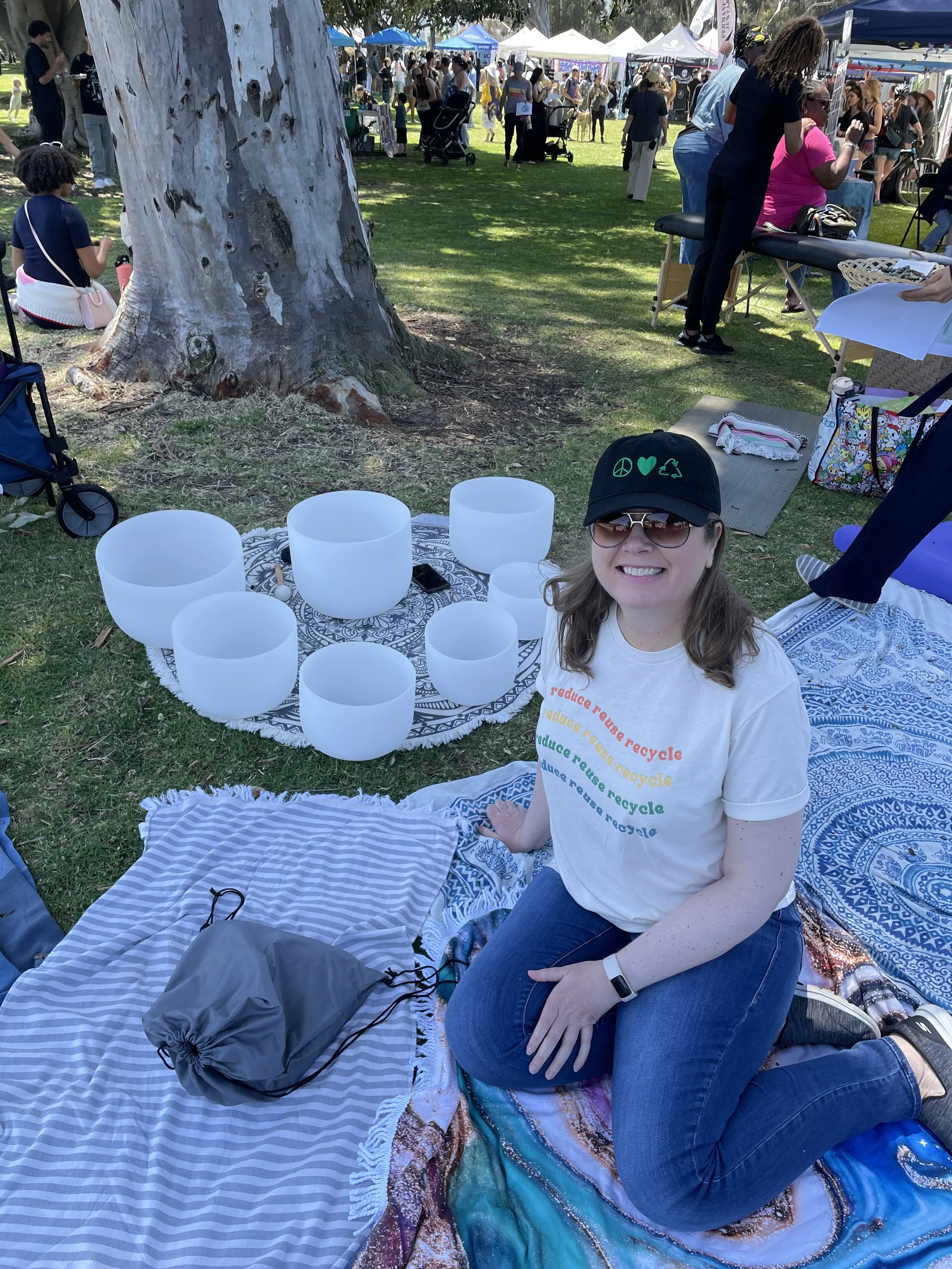
BLOG
The Environmental Impact of Overtourism: How We Can Travel More Sustainably
On a recent trip to Italy, I saw firsthand the negative effects of overtourism. While the trip was amazing overall, the impact of too many tourists on the environment and local communities was hard to ignore. The United Nations defines sustainable tourism as a way of traveling that considers the long-term impact on the economy, society, and the environment. Unfortunately, as more people flock to popular destinations, this balance is getting harder to maintain.
How Plants Benefit Our Planet
Incorporating more plants into our lives, whether through cultivating houseplants or developing backyard gardens, is a simple yet powerful way to contribute to environmental sustainability. Plants purify the air, regulate the climate, conserve water, support biodiversity, enhance human well-being, provide food and medicine, and add economic value. By nurturing plants, we not only improve our immediate surroundings but also make a positive impact on the global environment.
Earth Day in San Diego at EarthFest 2024
EarthFest, San Diego’s vibrant Earth Day event, took place this year on Saturday, April 20, 2024, in the heart of Balboa Park. As I arrived, just under an hour into the start of the event, I was immediately enveloped in a sense of community. It seemed as though everyone had gathered, united by a shared passion for sustainability. The air was filled with music, the voices of inspiring speakers, and the peaceful hum of meditation. And, of course, there were countless booths, each one a hub of activity, selling items, educating, and offering a variety of delicious vegan foods.
What is Earth Day?
Earth Day is on Monday, April 22, 2024, with this year’s theme being “Planet vs. Plastics.” Earth Day is a day of environmental activism. We should consider the following activities to be a part of the movement: Educate ourselves, Share our education with others (volunteer, make others aware), and Take action (ex., plant a tree, start limiting plastic usage, etc.).
A Guide to Garment Printing Methods: Understanding DTG, Screen Printing, DTF, and Sublimation
Direct-To-Garment (DTG): Printing method where ink is sprayed onto clothing, like a t-shirt, using a special printer, similar to how your home printer works.
Screen Printing: Technique where ink is pushed through a screen onto fabric, creating designs on shirts. It's good for making lots of shirts with the same design.
Direct-to-Film (DTF): Method where designs are printed onto film paper, then transferred onto fabric using heat. It's good for creating thin, vibrant designs.
Sublimation: Printing process where ink is transferred onto fabric using heat, covering the entire garment with the design. It's used for making all-over prints on shirts.
The More Sustainable Way To Go: Cremation vs Burial
By request, we are addressing a more morbid topic today. Somehow, the topic came up at dinner: Which is more sustainable: cremation or burial? Let’s review one at a time.
What is ESG?
Looking up a company's ESG report is a great way to learn about a company's sustainability efforts. However, remember to look out for any greenwashing. If you're interested in learning more about ESG investing, many resources are available online and from financial advisors.
Recycled Polyester
It’s likely that the clothes you are wearing right now have some polyester since polyester makes up about 60% of all clothing. Changing some polyester clothing to recycled polyester clothing is a step toward being more sustainable. Let’s learn about it.
Organic Cotton
Cotton is one of the most commonly grown crops in the world, and its use dates back to around 4000 B.C. Growing conventional cotton is also one of the most chemical-intensive processes. These chemicals negatively impact the earth’s air, water, soil, and people's health in the cotton-growing area.
What is Biodegradable Plastic?
Many items have the label of being biodegradable, making us think that these will easily break down in the natural environment and are eco-friendly. However, this is only sometimes the case.
Greenwashing
Would you rather purchase a sustainable product instead of a non-sustainable one? A sustainable one of course! Same with 66% of all consumers, or 73% of millennials (Source: Earth.org). But what does the company mean when telling us the product is sustainable? Are they really sustainable, or are they just saying so?
You Have More Plastic Waste Than You Think: A Two-Week Experiment
Most U.S. plastic waste ends up in landfills and pollutes land, oceans, air, and even food and human blood. It is incredible to see plastic nearly everywhere you look, and our use is projected to continue growing. This made me wonder: How much plastic am I using? Where is all the plastic I am using going? Is the plastic waste in my home recyclable?
Where Does Plastic Come From & What are Plastic Alternatives
Plastic is made from fossil fuels, contributing to greenhouse gasses that negatively impact climate change. Plastic also becomes microplastics as it sits on our planet for hundreds of years. The only way to improve is to do our best to avoid plastics. Look for recycled plastics or products that contain zero plastic. There are many alternatives available if you just look.
What Do Those Recycling Numbers Mean on Your Products?
In the U.S., in 2021, there were 51 tons of plastic waste, and only 4.7% of that was recycled. This tiny percentage is likely for multiple reasons: (1) We hear through the media that a lot of plastic is just not recyclable, so perhaps folks don’t bother to recycle; (2) every garbage collector has different plastic acceptance criteria; and (3) the rules constantly change as systems are upgraded (or downgraded). However, every small change can make a difference. So when I recycle, I know some of it will be recycled (yay!), some will end up in a landfill, and some will be burned somewhere across the world. But I still want to try and do my small part. So, with that, let’s focus here on demystifying some recycling confusion: What do those recycle label numbers mean?
Recycling Benefits and Issues
Plastics, aluminum, paper, and other materials, from food and packaging to medical devices, are essential to our lives. However, producing these materials requires raw materials from our planet. Therefore, we want to Reduce, Reuse, and Recycle these items so we will continue to have these natural materials for the future.
How To Compost Food Scraps; Results From One Week
Have you had trouble starting to compost food waste? I can relate. Lucky for you, some information is below that will help you get started. Find out why we compost, where you can compost, and what you can compost!
What are Carbon Emissions and Why Do They Matter? A Simple Explanation.
From reading the news to product descriptions, you start seeing the term “carbon emissions” everywhere. So what does it mean? “Carbon” refers to carbon dioxide, sometimes just written as “CO2.” Carbon dioxide is a gas that is sometimes let into our atmosphere from our human activities (“emissions”). These gases can trap heat in the atmosphere and are called greenhouse gases.
Why Should We Save Water?
Water, often called the "elixir of life," is not an infinite resource. With climate change and population growth, the need for water conservation is more critical than ever. Saving water isn't just about reducing your utility bills; it's also about making a positive impact on the planet. Let’s explore four reasons why saving water is good for our beautiful blue planet.
17 Beginner Tips To Living Green
It can be challenging to change your habits, but I’ve come up with 17 green living tips that are easy to change so you can start living green today. I am focused on providing you with easy ways to be environmentally friendly. I promise, nothing difficult here. Let’s start with the basics.
What is Sustainability? A Simple Explanation
Did you know being sustainable and being green is not exactly the same thing? I’ve been telling my friends for years to stop using plastic water bottles, and it’s time to learn more about why, along with what all these environmentally friendly words mean. So, let’s start with the basics: What is sustainability?
Let’s be friends!
Sign up with your email address to receive discounts, updates or important news, and a 30% off Etsy ship discount.




















